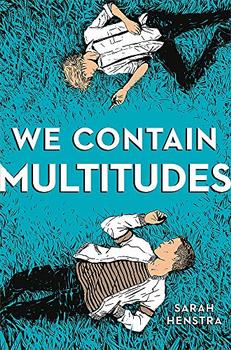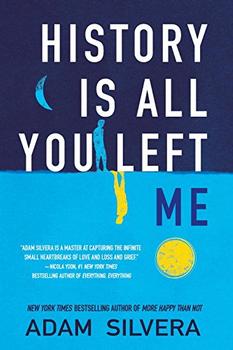Summary | Excerpt | Reviews | Beyond the book | Read-Alikes | Genres & Themes | Author Bio

Remember that movie Groundhog Day? Remember how Bill Murray wakes up every single morning to discover that everything - from the date on the calendar to the song on the radio - is exactly the same? David Levithan's Every Day shares a similar thoughtful playfulness about the fantastical predicament its protagonist - known only as A - encounters, but otherwise, the challenges A faces are exactly the opposite. You see, every morning when A wakes up, the world - or at least A's little corner of it - is entirely new. A wakes up in a different body every single day. It's been that way for A's entire life. A always occupies the bodies of people the same age (sixteen, now), and rarely travels outside the mid-Atlantic region. But other than that, A could - and does - wake up each morning in the body of anyone: a marathon runner or a drug addict, a teenage mom or a morbidly obese boy.
For most of A's life, this constant shift in perspective, in circumstances, has been simply a given, as much a normal part of everyday life as putting on socks is for the rest of us. But one day A wakes up in the body of Justin and finds himself falling head over heels in love with Justin's girlfriend Rhiannon. After that fateful day, A grows obsessed with reconnecting with Rhiannon. A breaks his/her own rules about getting involved with hosts' lives because, after all, they still have to go back to being themselves once it's tomorrow - a concept A never cared about or even really understood until s/he met Rhiannon.
Soon A is flirting with the idea of revealing the truth to Rhiannon. But which body should A tell her from? And how can A convince her that this crazy notion is real? Meanwhile, a former host who found himself in a compromising position when A was ripped from his body starts making allegations about demonic possession and worse. A finally wonders who am I? and what kind of effect am I having on the lives through which I pass, every day?
Although the premise of Levithan's novel might seem far-fetched, the concept is a deeply provocative starting point from which to explore a wide variety of topics and themes; from gender and sexuality (A doesn't identify as one gender or another, and the bodies A occupies are attracted to guys, girls, or sometimes both) to the nature of evil (A considers and rejects, at one point, the ease of using these unique circumstances to commit the perfect crime). Every Day also gets at the heart of what it means to be human and what it means to love. Both are, at best, elusive and, at worst, impossible for A. "I am not a part of this, and will never be a part of something like this," A reflects while attending the funeral of the grandfather of the boy whose body A occupies. "I will never have a family to grieve for me… I will not leave the trail of memories that he's left. No one will ever have known me or what I've done." The profound loneliness of A's life - the lack of genuine connection, and the absence of the opportunity to know someone over time and have him know you – is, at times, nearly unbearable.
But the book is written by the incurably romantic David Levithan, and so Every Day is also brimming with heartening descriptions of A's love for Rhiannon: "This is what love does. It makes you want to rewrite the world. It makes you want to choose the characters, build the scenery, guide the plot. The person you love sits across from you, and you want to do everything in your power to make it possible, endlessly possible." A's tender feelings toward Rhiannon surprise both of them - not to mention the reader - and A's love for her is consistently inspiring, uplifting, and nearly unimaginable in its generosity. Every Day makes readers' hearts soar and eyes well up in the course of a single page, and inspires them to find joy and gratitude in their yesterdays, todays, and tomorrows.
![]() This review was originally published in The BookBrowse Review in October 2012, and has been updated for the
September 2013 edition.
Click here to go to this issue.
This review was originally published in The BookBrowse Review in October 2012, and has been updated for the
September 2013 edition.
Click here to go to this issue.

If you liked Every Day, try these:

by Sarah Henstra
Published 2020
Aristotle and Dante Discover the Secrets of the Universe meets I'll Give You the Sun in an exhilarating and emotional novel about the growing relationship between two teens boys, told through the letters they write to one another.

by Adam Silvera
Published 2018
From the New York Times bestselling author of More Happy Than Not comes an explosive examination of grief, mental illness, and the devastating consequences of refusing to let go of the past.
Your guide toexceptional books
BookBrowse seeks out and recommends the best in contemporary fiction and nonfiction—books that not only engage and entertain but also deepen our understanding of ourselves and the world around us.